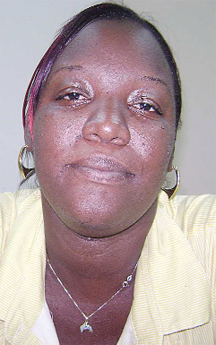Interviews and photos by Cathy Wilson
Recently a two-day education workshop was held in Linden facilitated by the Linden Fund and attended by teachers, administrators and consultants from the US, among others. Stabroek News asked some of the participants for their views on how to improve education and on the value of the workshop.
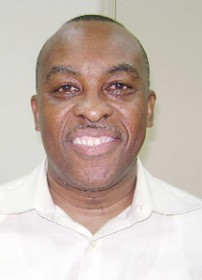 Steve Henry, programme analyst/US Army consultant – ‘My experience and interaction with the administrators and teachers from the Linden area were both positive and enlightening. It was positive in the sense that both groups were receptive to the information that was presented. They were willing to share their experiences and thoughts, even when they knew they would be challenged, and they were. I was enlightened to learn that both teachers and administrators are committed to the education and development of the future leaders of the community (the students).
Steve Henry, programme analyst/US Army consultant – ‘My experience and interaction with the administrators and teachers from the Linden area were both positive and enlightening. It was positive in the sense that both groups were receptive to the information that was presented. They were willing to share their experiences and thoughts, even when they knew they would be challenged, and they were. I was enlightened to learn that both teachers and administrators are committed to the education and development of the future leaders of the community (the students).
‘They showed that they are willing to commit to their personal growth in an effort to provide a quality education to their students. I believe that with continuous mentorship, the teachers, with the high level of interest I have observed, will sharpen their current skills and abilities to better prepare the future leaders of this and the surrounding communities.
‘Mentorship can be in the form of workshops, like the one we just completed, or scheduled continuation training for smaller groups (semi-annual seminars that recap and build on the last course). This system may be applied on a national level, and it should include opportunities for teachers to aspire to become administrators.’
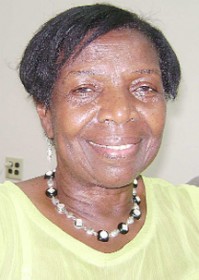 Dr Ivy Bakker-Mitchell, retired professional consultant USA – ‘The future of a country lies in the education of its children; Guyana cannot afford to pay little or no attention to the education of its youths. As a Guyanese who is involved in education both here in Guyana and abroad, I do think there is possibility for improvement. We can, we must do better. The effort for an improved educational system involves all stakeholders, administrators, teachers, pastors, businesses, parents and the community with a commitment from the department of education to offer full support to the schools. All of us working together can ensure that the children who are our future are well prepared to function in the global marketplace. This is my vision. Teachers are not properly trained.’
Dr Ivy Bakker-Mitchell, retired professional consultant USA – ‘The future of a country lies in the education of its children; Guyana cannot afford to pay little or no attention to the education of its youths. As a Guyanese who is involved in education both here in Guyana and abroad, I do think there is possibility for improvement. We can, we must do better. The effort for an improved educational system involves all stakeholders, administrators, teachers, pastors, businesses, parents and the community with a commitment from the department of education to offer full support to the schools. All of us working together can ensure that the children who are our future are well prepared to function in the global marketplace. This is my vision. Teachers are not properly trained.’
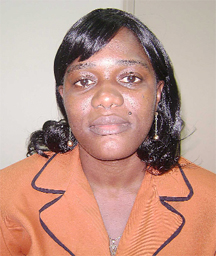 Diane Retemyer, teacher – ‘The workshop was an excellent initiative of the Linden Fund USA. It was not only stimulating but extremely informative. This workshop can be a catalyst used to strengthen the education system in Linden and aid in its reformation. The information shared should be incorporated into an action plan that aims to uplift the standards of education in Linden. There should also be a number of follow-up activities to ensure that the information is disseminated to all educators in the Linden area. It can be employed as a tool not only to motivate educators but encourage them to raise the bar in the delivery of this crucial service. We should always remember that the children we teach are tomorrow’s leaders – our nation’s future.’
Diane Retemyer, teacher – ‘The workshop was an excellent initiative of the Linden Fund USA. It was not only stimulating but extremely informative. This workshop can be a catalyst used to strengthen the education system in Linden and aid in its reformation. The information shared should be incorporated into an action plan that aims to uplift the standards of education in Linden. There should also be a number of follow-up activities to ensure that the information is disseminated to all educators in the Linden area. It can be employed as a tool not only to motivate educators but encourage them to raise the bar in the delivery of this crucial service. We should always remember that the children we teach are tomorrow’s leaders – our nation’s future.’
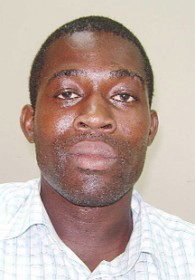 Henry Allen, Acting Master – ‘The Linden Fund USA has been tremendous in dealing with some of the challenges faced by teachers and [showing] the way forward. It was pointed out that “not one of us is greater than all of us.” Communication is important; listening must be assigned meaning to get maximum results. The way forward is to plan for every lesson; exercise fairness; assess students/ pupils’ weaknesses and strengths; write parents letters when students are doing well; [have] ongoing supervision; converse more with students/pupils; don’t lecture without stimulating thinking; don’t assume students’ learning style. Lastly feedback is important from us teachers in seeing objectives met to reach the expectations of students/pupils and the leader of the plan. I encourage all teachers in Guyana to take up the challenge in making our educational system one that we can be proud of along with the Linden Fund USA team.’
Henry Allen, Acting Master – ‘The Linden Fund USA has been tremendous in dealing with some of the challenges faced by teachers and [showing] the way forward. It was pointed out that “not one of us is greater than all of us.” Communication is important; listening must be assigned meaning to get maximum results. The way forward is to plan for every lesson; exercise fairness; assess students/ pupils’ weaknesses and strengths; write parents letters when students are doing well; [have] ongoing supervision; converse more with students/pupils; don’t lecture without stimulating thinking; don’t assume students’ learning style. Lastly feedback is important from us teachers in seeing objectives met to reach the expectations of students/pupils and the leader of the plan. I encourage all teachers in Guyana to take up the challenge in making our educational system one that we can be proud of along with the Linden Fund USA team.’
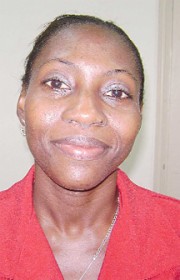 Shondel Cumberbatch, nursery teacher – ‘I have attended [a] two-day workshop and I have learned that communication is the key in order to enhance learning, whereas planning is also basically the main domain so as to facilitate learning. I am a teacher who will practise different methodologies so as to grasp the child’s attention and there is no right choice, but what decision you make you have to live with. ‘At the workshop I have learnt that we must always supervise/have strong supervision which is critical and as teachers we can break a child as well as make them.
Shondel Cumberbatch, nursery teacher – ‘I have attended [a] two-day workshop and I have learned that communication is the key in order to enhance learning, whereas planning is also basically the main domain so as to facilitate learning. I am a teacher who will practise different methodologies so as to grasp the child’s attention and there is no right choice, but what decision you make you have to live with. ‘At the workshop I have learnt that we must always supervise/have strong supervision which is critical and as teachers we can break a child as well as make them.
‘I also learnt about learning disability which is based mainly on children who are having difficulty in capturing information speedily. In order for this problem to be rectified [we have] to put ourselves in the shoes of the child, and I believe that we as teachers will want to see that in years to come the children that we have taught and the different strategies/methodologies we have used are well used. Workshops should be planned often in order to facilitate learning to [help teachers] handle their classrooms better.’
Francine Brotherson, education consultant USA – ‘A teacher’s moment-by-moment 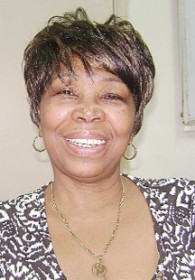 activities and interactions with children are the most powerful determinant of learning outcomes and development. Curriculum is very important, but what the teacher does is paramount. To ensure that teachers are able to provide care and education of high levels, they must be well prepared, participate in ongoing professional development and receive sufficient support from their individual administrator. In addition, in order to be effective the teacher should be intentional in their use of a variety of approaches and teaching strategies to support children’s interest and ability in each learning domain. As it relates directly to foundation learning, the hours spent at school should be extended to allow teachers to have more time with the kids because their play time practice is very important.’
activities and interactions with children are the most powerful determinant of learning outcomes and development. Curriculum is very important, but what the teacher does is paramount. To ensure that teachers are able to provide care and education of high levels, they must be well prepared, participate in ongoing professional development and receive sufficient support from their individual administrator. In addition, in order to be effective the teacher should be intentional in their use of a variety of approaches and teaching strategies to support children’s interest and ability in each learning domain. As it relates directly to foundation learning, the hours spent at school should be extended to allow teachers to have more time with the kids because their play time practice is very important.’
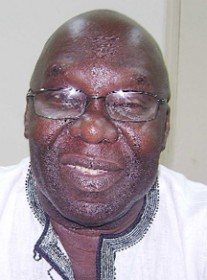 Dr Walter Kyte, retired school supervior/professor BK College – ‘Allow me first to congratulate the principals of the schools I have visited. I was impressed with the commitment and vision to implement good practices in their school. In addition I was very pleased to see several teachers that engage their students in strong academic learning periods. Furthermore the eyes of the students glittered with happiness, enjoyment and confidence…
Dr Walter Kyte, retired school supervior/professor BK College – ‘Allow me first to congratulate the principals of the schools I have visited. I was impressed with the commitment and vision to implement good practices in their school. In addition I was very pleased to see several teachers that engage their students in strong academic learning periods. Furthermore the eyes of the students glittered with happiness, enjoyment and confidence…
‘On the other hand there is need to make a revolutionary change in our schools based on expectations and standards. I have observed that in several classes there is a lack of supervision whereby students were taking things in their own hands due to the lack of teaching staff. My appeal to the leadership in the community is to do the following: 1. Visit all the schools in the region regularly. 2. Develop the needs assessment ongoing with the administration of the staff of different schools. 3. Establish a strong parent team. 4. [Establish] a strong student government in these schools, and last but not least [there should be] leaders willing to make these changes. They are faced with critical issues sometimes insurmountable for them to challenge. I am concerned about the schools with a population of failing students and poor expectation by teachers. I observed that many of our youngsters are faced with serious learning disabilities and need additional help.’
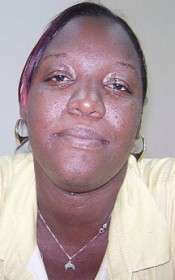 Tracy Joseph, teacher – ‘The road to improving education in Guyana starts with simple steps. I was fortunate to participate in a recent conference with professors from the USA and sharing my experiences from this would be my recommended way for the furtherance of the education system in Guyana. The conference emphasized the importance of proper lesson planning and effective teacher-student communication. It has helped me to experience other teaching-learning strategies which will help me in the preparation of my lesson plan and aid in the delivery of the lesson, which in turn will benefit the students, the ultimate goal of this process. As teachers we must equip ourselves with the necessary tools and skills to channel the minds of the next generation.
Tracy Joseph, teacher – ‘The road to improving education in Guyana starts with simple steps. I was fortunate to participate in a recent conference with professors from the USA and sharing my experiences from this would be my recommended way for the furtherance of the education system in Guyana. The conference emphasized the importance of proper lesson planning and effective teacher-student communication. It has helped me to experience other teaching-learning strategies which will help me in the preparation of my lesson plan and aid in the delivery of the lesson, which in turn will benefit the students, the ultimate goal of this process. As teachers we must equip ourselves with the necessary tools and skills to channel the minds of the next generation.
‘The Ministry of Education in collaboration with the Regional Democratic Council must assume a proactive role in the student/teacher/parent welfare with much emphasis on special education and not allowing students to fall between the cracks. As a teacher, I have learnt that it is a good practice to encourage interaction among educators, students and parents in formal and informal settings. In so doing, learning is facilitated and encouraged in all spectrums.’

